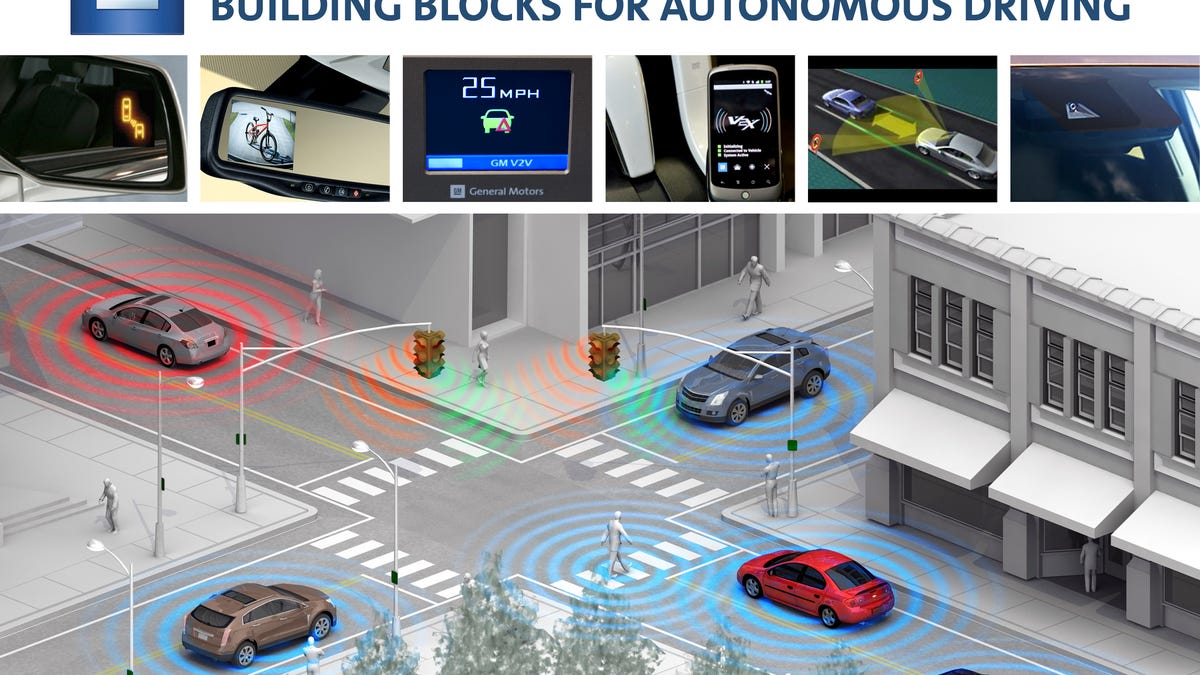GM: Expect self-driving vehicles by 2020
Self-driving vehicles may seem cutting-edge, but they could be on the road by the end of the decade, says GM.

Self-driving vehicles may seem cutting-edge, but they could be commonplace sooner than you think, according to GM.
GPS, sensors, cameras, and wireless technology are available in many cars currently on the market, and are used in lane-departure, crash-avoidance, and navigation systems to make vehicles safer and more convenient for consumers to drive. But they're also the building blocks of autonomous platforms, and when used in concert with car-to-infrastructure communication, they open the door to vehicles that can operate on autopilot--a technology leap that isn't that far off from becoming a reality.
Cars that are semi-autonomous will be available by the middle of the decade, said Alan Taub, vice president of research and development at General Motors, in a news statement. Adaptive Cruise Control, a lightweight version of autopilot that uses radar to maintain traveling speed, is available in many GM vehicles, but still requires driver engagement.
BMW is equipping its electric i3 city car, expected to launch in 2013, with Traffic Jam Assistant, a semi-autonomous driving technology that will guide the car in low-speed, stop-and-go traffic. With the implementation of car-to-x communication technology, it's just a matter of time until cars take the driver completely out of the equation.
And by "a matter of time," Taub means by 2020.
Fully autonomous vehicles will come to market by the end of the decade, says Taub. The auto manufacturer has begun work on the next-generation of its autonomous two-seater pod, EN-V, which is rumored to debut in 2020. To get ready for the reveal, GM is investigating cities and environments to test the self-driving pod in real-world scenarios.
Other manufacturers, such as Audi and China's First Auto Works, are also woking to develop vehicles that can drive themselves.
Google's fleet of autonomous Priuses have logged more than 140,000 miles with reportedly only two minor accidents, the most recent caused by human error. The technology company successfully lobbied the Nevada legislature to develop rules that will pave the way for autonomous vehicles to become street legal in Sin City by 2012.

